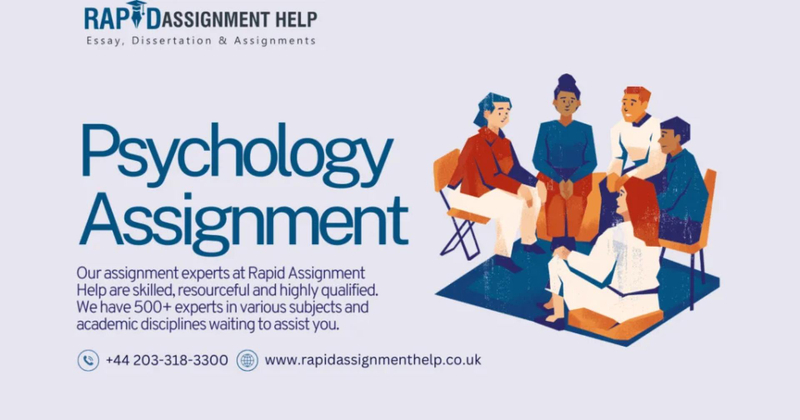Introduction
From what we eat for breakfast to life-changing career decisions, decision-making is a fundamental part of human behaviour. But what influences our choices? Are we rational thinkers, or are we driven by emotions, biases, and subconscious patterns?
Understanding decision-making is a core topic in psychology, particularly relevant in cognitive, behavioural, and social psychology. For UK psychology students, mastering this area is essential for coursework, dissertations, and applied research. If you’re tackling complex theories or analysing behavioural data, accessing Psychology Assignment Help can provide structured guidance aligned with UK academic standards.
What Is Decision-Making in Psychology?
Definition
In psychology, decision-making refers to the cognitive process of selecting a course of action from multiple alternatives. It involves perception, attention, reasoning, and evaluation, making it a multi-layered process studied across various psychological disciplines.
Cognitive Models of Decision-Making
1. Rational Decision-Making Model
This classical model assumes that individuals make decisions by:
- Identifying the problem
- Gathering information
- Evaluating alternatives
- Choosing the optimal solution
While widely used in economics and management psychology, it is increasingly critiqued for ignoring emotional and irrational influences on human behaviour.
2. Bounded Rationality (Herbert Simon)
This theory suggests people satisfice—choosing a solution that is good enough rather than optimal—due to limited information, time, and cognitive capacity.
It’s particularly relevant in high-stakes or fast-paced situations like healthcare, business, and legal decision-making.
3. Dual-Process Theory (Kahneman & Tversky)
- System 1: Fast, automatic, intuitive (used in everyday decisions)
- System 2: Slow, effortful, analytical (used in complex or unfamiliar tasks)
This model is foundational in modern psychology and has influenced everything from clinical therapy to marketing strategies.
Emotions and Decision-Making
The Somatic Marker Hypothesis (Antonio Damasio)
Emotions act as bodily markers that influence decisions. For example, a negative gut feeling can steer us away from harmful choices—even without logical reasoning.
This theory shows how emotion and cognition are interconnected, especially in high-stakes decision-making like risk assessment or interpersonal relationships.
Mood and Cognitive Bias
Our emotional state affects our perception of risk and reward:
- Positive mood: More optimistic, risk-taking
- Negative mood: More cautious, analytical
Students studying health psychology, therapy, or behavioural economics can explore how moods bias decision outcomes in clinical or social settings.
Common Cognitive Biases in Decision-Making
- Confirmation Bias: Favouring information that supports existing beliefs
- Anchoring Bias: Relying too heavily on the first piece of information encountered
- Overconfidence Bias: Overestimating one’s knowledge or ability
- Availability Heuristic: Judging likelihood based on readily available memories
These biases can lead to flawed decisions in both personal and professional domains, making their understanding crucial for psychologists.
Neuroscience of Decision-Making
Key Brain Areas Involved
- Prefrontal Cortex: Planning, reasoning, and problem-solving
- Amygdala: Emotional evaluation of risks and threats
- Ventral Striatum: Reward processing
Studies using fMRI show that these brain regions activate differently depending on the type of decision, offering valuable insight into mental health, criminal behaviour, and addiction.
Decision-Making in Social Contexts
Groupthink
Coined by Irving Janis, groupthink occurs when group pressure overrides realistic appraisal, leading to poor decisions. Common in:
- Corporate boards
- Government policy teams
- Student project groups
Students in organisational or social psychology should understand how to mitigate groupthink through techniques like structured dissent and critical feedback.
Conformity and Peer Influence
Experiments like Asch’s Line Study reveal that people often conform to group norms, even when they believe the group is wrong. Social pressure can deeply influence decision-making, especially in adolescence.
Applications in Real Life and Psychology Assignments
1. Clinical Psychology
Therapists work with clients to improve decision-making in areas like:
- Addiction recovery
- Anxiety and avoidance behaviour
- Relationship dynamics
Understanding decision paralysis or impulsivity is key in CBT and other therapeutic models.
2. Business and Occupational Psychology
Decision-making skills are vital in:
- Leadership and management
- Marketing strategies
- Employee assessments
Students might study how incentives, feedback, and cognitive load affect executive decision-making.
3. Legal and Forensic Settings
Forensic psychologists examine decisions made under stress or bias, such as false confessions, eyewitness testimony, and jury deliberation.
Improving Decision-Making Skills
Psychology doesn’t just study decision-making—it offers tools to enhance it:
- Mindfulness training improves awareness and reduces impulsive decisions.
- Pros and cons lists activate System 2 thinking.
- Cognitive-behavioural techniques help restructure irrational beliefs influencing choices.
These interventions are not only academically interesting but are widely applied in real-life settings like schools, therapy sessions, and organisations.
Assignment Topics for Psychology Students
For UK students writing dissertations or essays, here are relevant topics:
- “The Role of Emotion in Medical Decision-Making: A Cognitive Psychology Approach”
- “Biases in Jury Decision-Making: A Forensic Psychology Analysis”
- “Dual-Process Theory and Ethical Dilemmas: An Experimental Study”
- “Improving Decision-Making in Adolescents Through Mindfulness: A Developmental Psychology Perspective”
If you’re unsure how to begin or structure your work, Psychology Assignment Help can provide academic support with topic selection, referencing, and theoretical application.
Conclusion
The psychology of decision-making is a dynamic field that integrates emotion, cognition, behaviour, and neuroscience. Whether we’re navigating personal dilemmas or analysing criminal intent, understanding how people make decisions is crucial to the practice and study of psychology.
For UK psychology students, this topic opens doors to diverse fields—from therapy and education to business and law. And when academic tasks become overwhelming, professional Psychology Assignment Help can provide clarity and confidence in your coursework.



